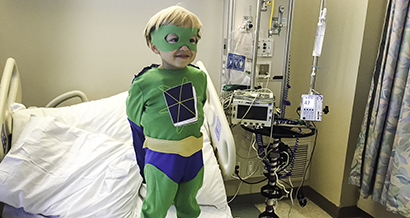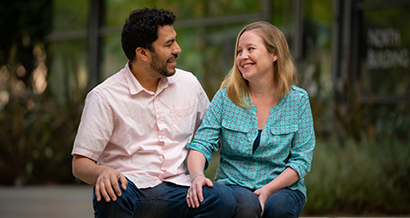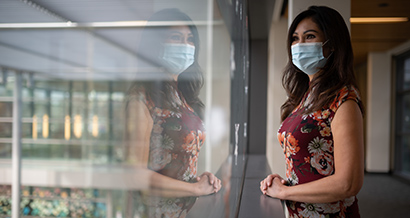Pancreatic cancer is stubborn. Despite recent developments in treatment, 90% of people with the disease die within five years of diagnosis.
In 2020, Americans mourned the passing of three luminaries who died from the disease: U.S. Supreme Court Justice Ruth Bader Ginsburg, civil rights leader and congressman John Lewis, and popular “Jeopardy!’ game show host Alex Trebek.
Their deaths are reminders of the tragic toll of pancreatic cancer, which has the ominous ranking of being the third leading cause of cancer-related death in the U.S. Unfortunately, it is expected to move into second place soon.
“It is disappointing that advancements in cancer research have been unable to rein in pancreatic cancer,” said Richard Bold, the physician-in-chief of the UC Davis Comprehensive Cancer Center. “In fact, it’s one of the few cancers for which survival has not improved substantially in nearly 40 years.”
Bold is determined to change that trend.
“We are doubling down on pancreatic cancer at the UC Davis Comprehensive Cancer Center,” said Bold.
“If we can make progress fighting this insidious cancer, we can take on any type of cancer.”
A $4 million Pancreatic Cancer Collective grant recently awarded to UC Davis will fund an early-stage clinical trial to test delivering radioactive isotopes directly into pancreatic cancer cells.
Pancreatic cancer is a leading cause of death mostly because there are no early detection tools to diagnose it in its early stages. Age, gender, race and family history are thought to play a role, and UC Davis researchers are uncovering more risk factors and ways that you can reduce your chances of getting pancreatic cancer, including tobacco and alcohol use.
Teaming up to take on one of the “world’s worst cancers”
The outcome is best when patients are treated by experts who see this cancer frequently. Yet, only 17% of pancreatic cancer patients in California are treated at one of the five top-rated University of California comprehensive cancer centers.
That’s where the UC Pancreatic Cancer Center Consortium comes in. The UC Davis Comprehensive Cancer Center is hoping to dramatically change outcomes for pancreatic cancer patients by joining the consortium, which is bringing all five UC comprehensive cancer centers together to share research, coordinate trials, develop therapies, and treat and educate patients.





